Forklift Training in Peterborough – Get Your RTITB Certification Today
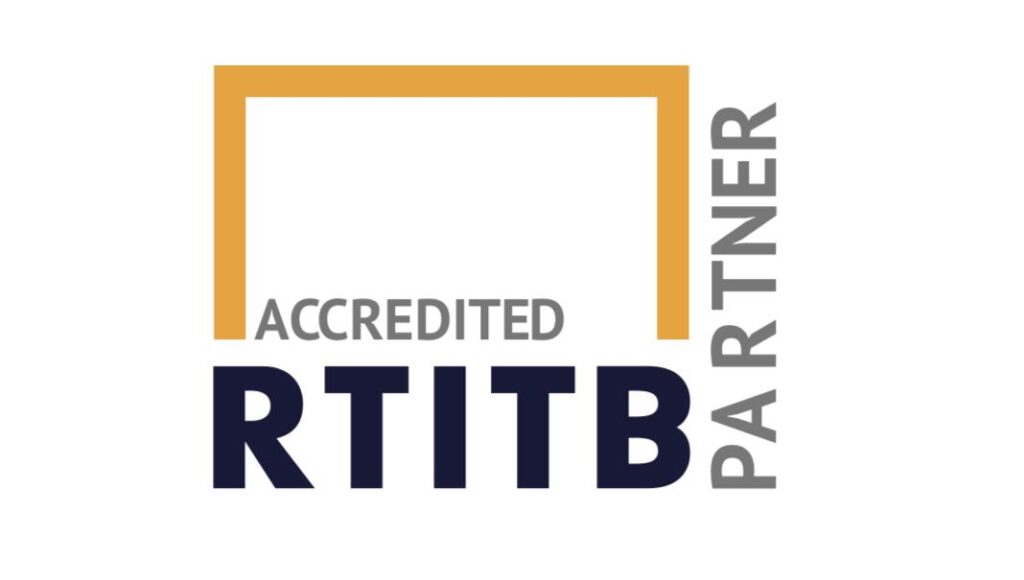
Forklift Training in Peterborough is one of the best steps you can take if you want to boost your career in warehousing, logistics, or construction. At Result.co.uk, we provide professional training, completing forklift training is one of the best steps you can take. At Result.co.uk, we provide professional training that gives you the skills, confidence, and certification you need to secure better job opportunities. Why Forklift Training Matters Forklift Training in Peterborough is essential because the city is home to busy warehouses, logistics hubs, and construction projects — all of which need qualified forklift operators. Having a recognised forklift licence shows employers that you can work safely and efficiently. Improves your job prospects Helps you stand out from other candidates Can lead to higher wages and long-term contracts RTITB Forklift Training in Peterborough At Result Training, we’re proud to deliver forklift courses accredited by NPORS and RTITB — two of the UK’s leading accrediting bodies. What this means for you: Your certificate is nationally recognised and accepted across most industries Training is practical, hands-on, and job-focused Courses suit both beginners and experienced operators Both NPORS and RTITB licences are recognised by employers across the UK and internationally, making your qualification flexible and future-proof. Why Choose Result.co.uk? People looking for Forklift Training in Peterborough choose us because we offer: Flexible timings – evenings and weekends available Price beat guarantee – we’ll match or beat any local price Onsite training – we can come to your workplace if required 5-Star Google Reviews – trusted by learners across the region Career Opportunities After Training Once you’ve completed your Forklift Training in Peterborough, you’ll be ready to step into roles such as: Warehouse operative Logistics and distribution staff Forklift operator on construction sites Manufacturing and production roles With Peterborough’s strong links to major distribution networks, trained forklift drivers are in demand all year round. Get Started Today Book Today
How To Master Forklift Theory Test

Passing your forklift theory test is the first step to becoming a safe and certified forklift operator. Many trainees worry about this part, but with the right preparation, you can pass with confidence. In this guide, Result Forklift Training shares exactly how to master forklift theory test — from what to expect to how to study smarter. Why the Forklift Theory Test Matters Your theory test is not just a box-ticking exercise. It proves you understand crucial safety rules, equipment checks, hazard awareness, and best practice for handling loads. Employers look for well-trained operators who know the theory inside out because it reduces workplace accidents and protects everyone on site. What’s Included in the Forklift Theory Test? Before you learn how to master the forklift theory test, it helps to know what’s covered.Typical theory tests include: You may face multiple-choice questions, true-or-false statements, or short written answers, depending on your accrediting body (RTITB, ITSSAR, AITT, etc.). 5 Steps To Master the Forklift Theory Test Ready to boost your pass rate? Follow these steps to master the forklift theory test: 1. Pay Attention During Practical Training Your trainer will cover everything needed for your test. Listen carefully, ask questions, and take notes. The more engaged you are, the easier the theory will be. 2. Use Your Course Materials Good training providers give you handouts or access to digital resources. Review them regularly — they’re written to match the actual test format. 3. Take Practice Quizzes Just like the car driving theory test, practice quizzes help you learn question styles and highlight topics you need to revisit. 4. Focus on Health & Safety Rules A big part of the theory is proving you know how to keep yourself and others safe. Focus on the Approved Code of Practice (ACoP) L117 and the basics of lift truck stability. 5. Don’t Leave It Too Late Start studying as soon as your course begins. Last-minute cramming rarely works. 15–20 minutes a day is much more effective than a single long session the night before. Common Mistakes To Avoid When learning how to master the forklift theory test, watch out for these mistakes: Why Train with Result Forklift Training? At Result Forklift Training, we make sure every learner feels ready for both the theory and practical parts. Our instructors break down complex topics into simple steps — and we’re proudly RTITB accredited with an Excellent audit score. Whether you’re a novice or an experienced operator doing a refresher, you’ll get all the support you need to master the forklift theory test and pass with flying colours.
8 Reach Truck Operation Safety Tips

Reach Truck Operation Safety Tips aren’t mere bullet points in a handbook—they may be the silent architecture of a warehouse’s survival and rhythm. Behind the metal bones of each pallet racking device lies a dance of precision, orchestrated via the fingers of skilled attain truck operators. These machines, tailored for slim aisles and vertiginous stacking within the UK’s bustling storage corridors, are both a marvel of software and a capacity chance cloaked in metallic. When navigated with out vigilance, attain trucks come to be catalysts of disaster—turning moments of inattention into echoes of harm. This manual dissects the critical safety tenets that underpin powerful operation, arming both employers and operators with a mind-set engineered no longer only for performance—but for staying power, foresight, and an uncompromising devotion to safety. Eight Reach Truck Operation Safety Tips A reach truck is a type of forklift designed for navigating narrow warehouse aisles while extending loads to high racking. Due to their unique design and stability considerations, reach trucks demand specific operator skills and safety practices. Proper training and certification are crucial to ensure every operator can handle a reach truck safely and efficiently. 1. Complete Comprehensive Reach Truck Training Did you whole the right schooling?”“Make positive you understand how that reach truck balances before you even contact the controls.”“Don’t pass the sensible session, concept’s now not sufficient.” These aren’t simply offhand remarks—they’re the spoken gospel of protection in the warehousing global. Everyone who’s been around a attain truck knows: with out certified education, you are playing with steel, shelves, and lives. The suitable ones will inform you—they had to go through a strong schooling application, now not just a booklet and a handshake. It become a complete-fledged route, with real-life exercise, deep dives into mechanics, and an expertise of how those machines flow, tip, and reply underneath strain. One pro operator placed it bluntly:“If you’re no longer educated, you’re not geared up. That’s how injuries occur.” And he’s not wrong. Certification isn’t paperwork—it’s a guard. It’s what aligns your moves with fitness and safety standards. It’s what continues the aisles secure and the shifts easy. So whilst we speak about the Eight Reach Truck Operation Safety Tips, don’t forget, it all starts with this shared wisdom—get trained, get certified, and take that seat handiest while you’re geared up to pressure clever, now not simply drive. 2. Conduct Pre-Operation Inspections A thorough inspection of the reach truck before each shift is essential. Check for issues such as hydraulic leaks, worn tyres, malfunctioning brakes, and faulty steering systems. Address any faults before using the reach truck to maintain operational safety and avoid breakdowns during work. 3. Be Aware of Load Capacity and Stability One of the key aspects of reach truck operation safety is respecting the truck’s load capacity. Overloading or improperly stacked loads can cause the reach truck to tip over. Operators should always refer to the manufacturer’s load chart and ensure loads are stable and secure. 4. Practise Safe Manoeuvring Techniques Reach trucks are designed for tight spaces, making careful manoeuvring essential. Operators must maintain a clear view of the direction of travel and use the reach truck’s mirrors and warning systems effectively. Avoid sudden turns or excessive speeds, particularly when handling heavy loads. 5. Maintain Clear Communication in the Workplace Communication is vital in any warehouse environment. Operators must be aware of pedestrians and other vehicles, using horns or alarms when necessary. Warehouses should implement clear safety signage and pedestrian walkways to support safe reach truck operation. 6. Stay Focused and Minimise Distractions Distractions during reach truck operation can lead to accidents. Operators should avoid using mobile devices or engaging in unnecessary conversations while operating the reach truck. Focus and concentration are essential for maintaining control and reacting quickly to changing conditions. 7. Keep Work Areas Organised and Free from Hazards A cluttered warehouse floor can increase the risk of accidents during reach truck operation. Regularly clear aisles of obstructions, and ensure that racking systems are stable and well-maintained. Good housekeeping practices support safe and efficient reach truck operation. 8. Ongoing Refresher Training Even experienced operators benefit from periodic refresher training. It ensures that skills remain sharp and operators stay updated on best practices and changes in regulations. Employers should schedule refresher courses to reinforce safe reach truck operation and compliance with health and safety standards. Conclusion Safe reach truck operation is a shared responsibility between operators and employers. By following these reach truck operation safety tips, you can reduce the risk of accidents and maintain a productive and safe warehouse environment. Investing in proper training, conducting regular inspections, and encouraging safe work habits are crucial for every workplace that relies on reach trucks.
Start a career with government funded forklift courses in the Uk Enroll Now.
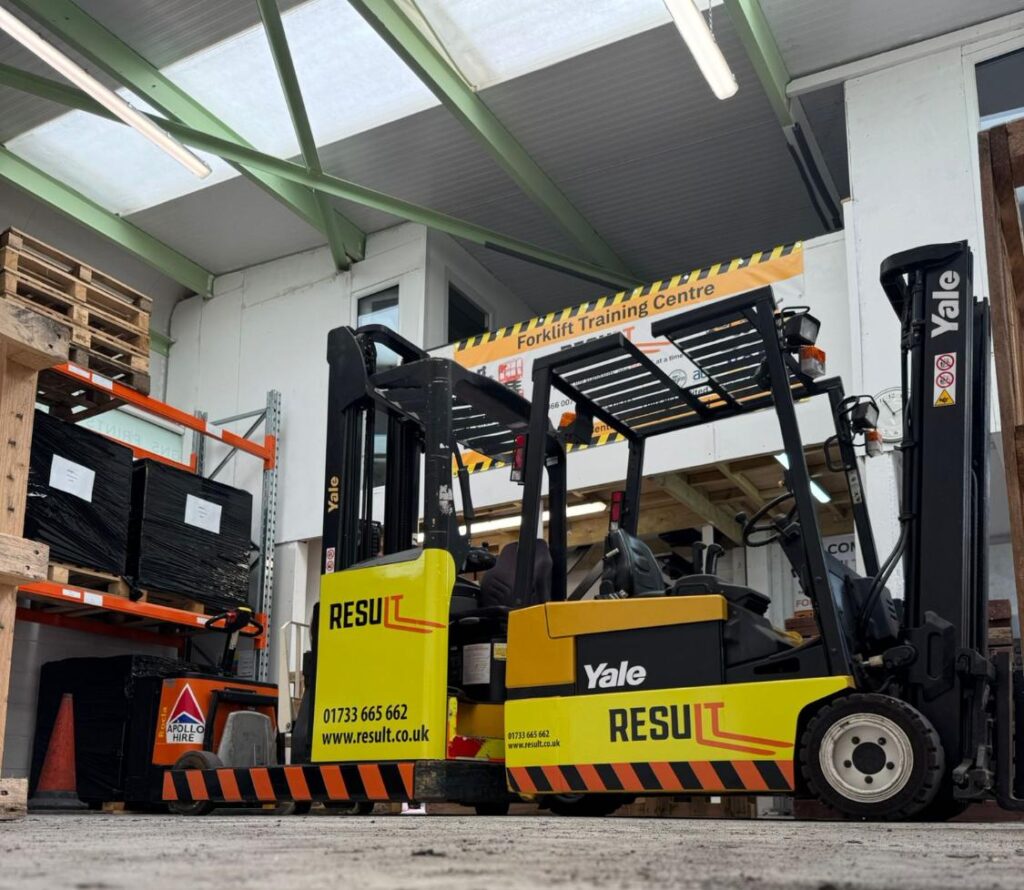
Government Funded Forklift Courses offer a realistic answer for those trying to input excessive-call for industries like warehousing, logistics, and construction in the UK. Forklift operation is a sought-after ability, however the price of education can frequently maintain humans returned. These funded courses help put off that economic barrier, presenting a extra handy path to certification and improved task opportunities across the usa. What Are Government Funded Forklift Courses? Government funded forklift courses are part of a broader initiative to upskill the workforce and reduce unemployment. These programmes are often supported through: Such funding schemes aim to help jobseekers, low-income earners, and career changers gain qualifications in high-demand industries. Who Is Eligible? Eligibility for free or subsidised forklift training in the UK depends on several factors: Some training is also offered through job placement or retraining schemes backed by local councils or employer partnerships. Types of Forklift Courses That May Be Funded At Result Forklift Training, we offer a wide range of forklift certification programmes. Some of these may qualify for funding depending on your location and the scheme you apply through: Our team can help you determine whether your desired course qualifies for any local or national funding opportunities. How to Apply for Government Funded Forklift Courses If you’re interested in enrolling on a government funded forklift course, follow these simple steps: Why Choose Result Forklift Training? Let Us Help You Get Started Don’t let training costs hold you back from a new career in forklift operation. Result Forklift Training is here to help you explore your options and find a training route that fits your circumstances. 📍 Serving Peterborough and surrounding areas. 📞 Call us today or use our online enquiry form to check your eligibility and course availability. We Offer Forklift Training Courses all across UK Our services across various locations in the UK includes: London, Peterborough, Northampton, Corby, Wisbech, Luton, Bedford, Cambridgeshire. Conclusion Government funded forklift courses in the UK offer a valuable pathway for individuals to gain qualifications without bearing the full financial burden. Whether you’re unemployed, retraining, or simply looking to upskill, there are options available to you. Get in touch with Result Forklift Training today and take the next step toward a qualified, job-ready future.
Ultimate Forklift Certification Process in Huntingdon: Step-by-Step Guide
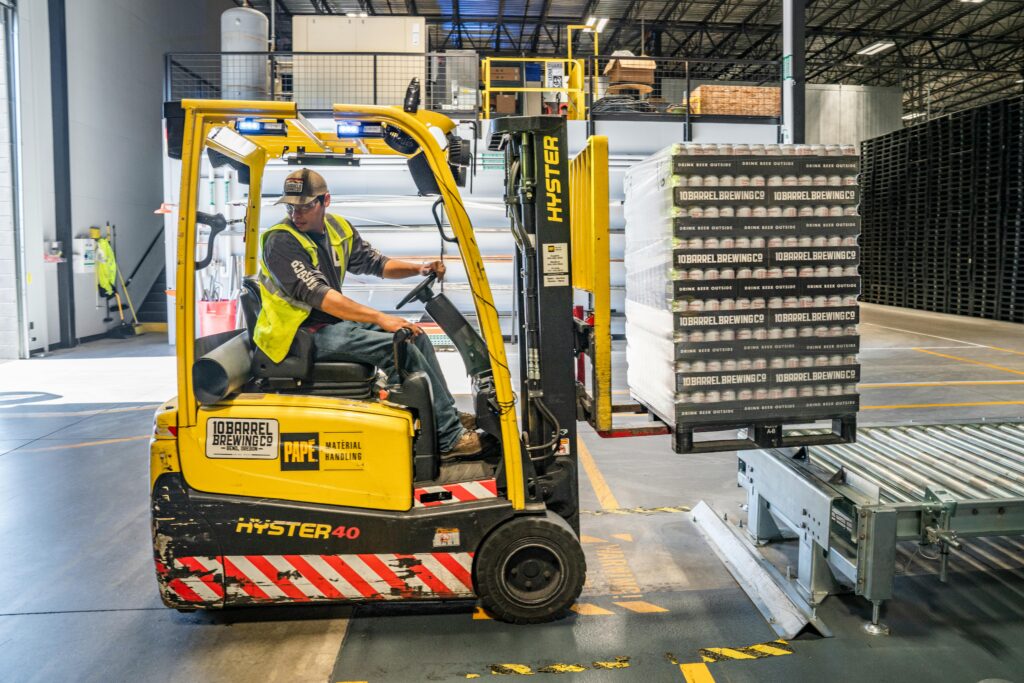
Ultimate Forklift Certification Process in Huntingdon: Step-by-Step Guide Forklift Certification Process in Huntingdon is essential to understand if you’re looking to begin a career as a forklift operator in the area. Whether you’re a job seeker, employer, or upskilling for better roles, proper certification ensures safety and compliance with UK regulations. This blog post will walk you through the entire forklift certification process in Huntingdon region and provide insights on where to get trained and certified. Why Forklift Certification Matters in Huntingdon? Huntingdon’s warehouses, distribution centres, and industrial businesses rely heavily on skilled forklift operators. As the logistics sector grows, certified forklift drivers are in high demand. Local employers prefer candidates who are trained, tested, and aware of safety protocols. Benefits of Certification: Legal Requirements for Forklift Certification in the UK In the UK, there is no government-issued forklift licence. However, employers are legally required to ensure all forklift operators are adequately trained under the Provision and Use of Work Equipment Regulations 1998 (PUWER) and L117 Approved Code of Practice. Training must be provided by accredited organisations such as: Step-by-Step Forklift Certification Process in Huntingdon 1. Choose a Trusted Local Training Provider Select a certified and experienced forklift training centre in Huntingdon. Look for providers with RTITB accreditation, skilled instructors, and excellent local reviews. 2. Select the Right Course Type Depending on your experience, choose from the following forklift courses we offer: Common forklifts covered include: 3. Undergo Theoretical and Practical Training Courses include: 4. Pass the Assessment & Practical Test You must pass a written exam and hands-on driving test. The test is designed to evaluate: 5. Receive Your Certification After successfully completing the course and exam, you’ll receive: Many providers in Huntingdon also issue photo ID cards for easy workplace verification. Forklift Certification in Huntingdon – Pricing & Fee Details Forklift training fees vary by course type, duration, and provider. On average: Some local training centres offer funding options or group discounts for businesses. Duration of Forklift Training Your previous experience and forklift type will affect the total training time. Tips to Choose the Right Forklift Training Provider in Huntingdon Ready to start training? Book Your Forklift Course in Huntingdon Now Frequently Asked Questions Do I need a license to drive a forklift in Huntingdon? No official “license” exists, but certification is required by law under PUWER and HSE standards. How long is my forklift certification valid? Most forklift certifications are valid for 3 to 5 years, depending on employer policy and HSE guidelines. Can I take forklift training if I have no experience? Yes! Novice courses are designed for beginners and are widely available in Huntingdon. Is the training offered on weekends or evenings? Some providers offer flexible schedules for shift workers. Contact local centres for availability. Can businesses get on-site forklift training in Huntingdon? Yes. Many training providers offer on-site certification at your workplace for teams. Conclusion: Take the First Step to Get Certified Forklift certification in Huntingdon is not just a requirement—it’s your gateway to better job opportunities, workplace safety, and career growth. By following the right process and choosing a local provider, you’ll be fully prepared to operate machinery confidently and safely.
Accredited Forklift Training. Essential for Your Career Success.
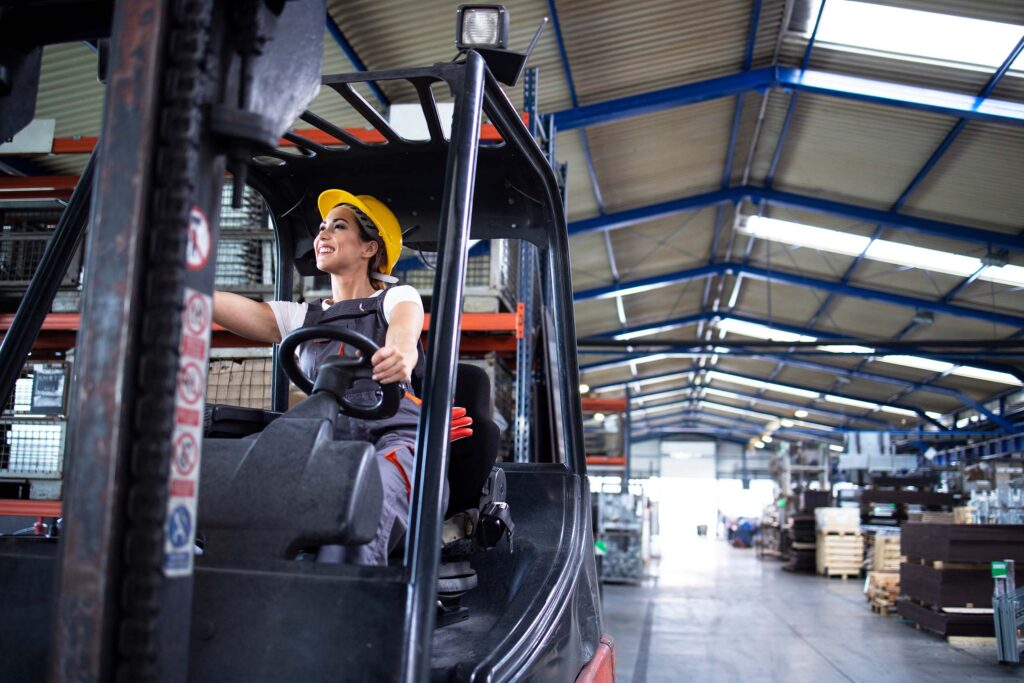
Why Accredited Forklift Training is Essential? In today’s competitive job market, having the right skills can make all the difference. For anyone considering a career in logistics, warehousing, or construction, completing accredited forklift training is one of the smartest moves you can make.At Result Forklift Training, we provide high-quality, nationally recognized training that prepares you for real-world job opportunities. In this blog, we’ll explain why accredited training matters, what you’ll learn, and how it can fast-track your career success. What Is Accredited Forklift Training? Accredited forklift training means the course meets industry standards set by recognised authorities, such as RTITB, ITSSAR, or NPORS. It ensures that operators are trained not only in the practical skills needed to drive a forklift safely but also in the latest health and safety regulations. When you complete a certified course with Result Forklift Training, you receive a qualification that employers trust, giving you a competitive edge in the job market. Why Choose Accredited Training? When it comes to operating forklifts, you might think any training will do. But here’s the secret: accredited forklift training isn’t just about getting a license; it’s about investing in safety, efficiency, and a future-proof career. Imagine driving a car without proper lessons and a licensed instructor. You might get by for a bit, but the risks are huge! The same applies to forklifts. These powerful machines are essential for many industries, but in the wrong hands, they can lead to serious accidents, costly damage, and even legal trouble. So, why go the accredited route? Let’s break it down: Choosing an accredited course is important for several reasons: What You Will Learn with Result Forklift Training? At Result Forklift Training, we offer comprehensive courses that cover: We believe that practical knowledge combined with theoretical understanding leads to better, safer operators. Who Needs Forklift Training? You need accredited forklift training if you are: Forklift operators are in constant demand across the UK, and having proper certification opens the door to many opportunities. Why Train with Result Forklift Training? Here’s why hundreds of trainees choose us every year: We are committed to helping you succeed, from your first day of training to landing your first job. Still confused? Look at what our reviewers say about us. How to Get Started Enrolling in an accredited forklift training course with Result Forklift Training is simple: The sooner you start, the sooner you can take your career to new heights. Conclusion Accredited forklift training is not just a legal requirement — it’s your gateway to a safer, better-paying, and more fulfilling career.At Result Forklift Training, we are passionate about delivering training that makes a real difference. Whether you are new to forklift operation or looking to refresh your skills, we have the right forklift training courses for you. Ready to kick-start your career? Contact Result Forklift Training today and take the first step towards a brighter future.
Find top Counterbalance Forklift Jobs in Peterborough Start Your Career Today
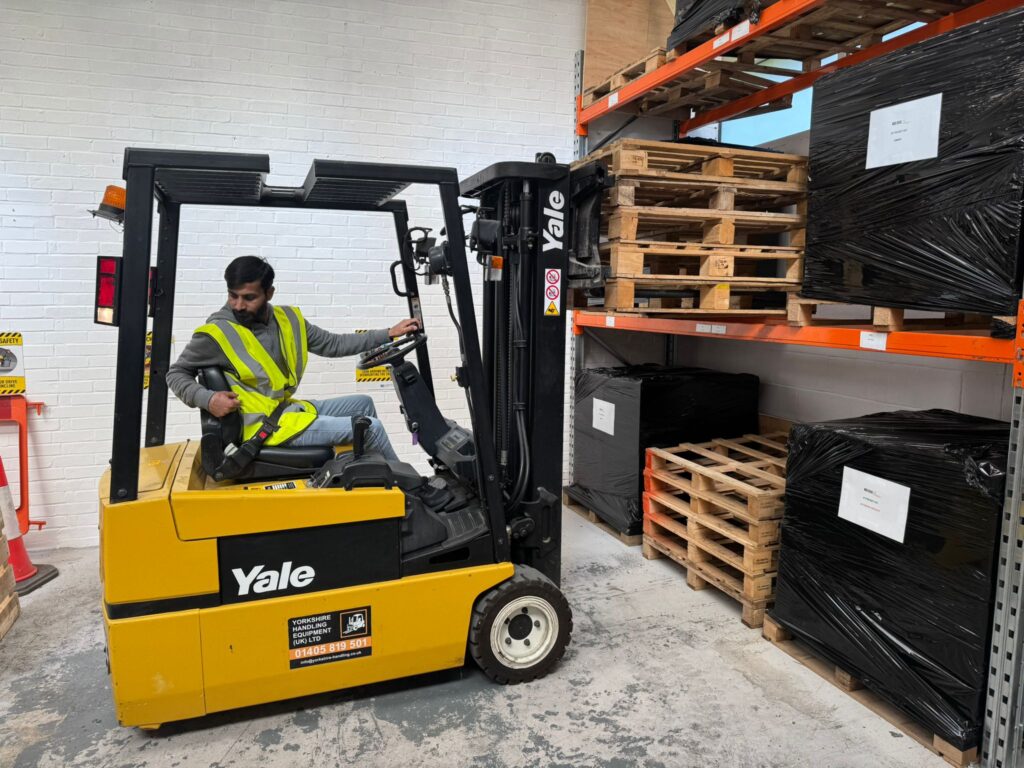
Find top Counterbalance Forklift Jobs in Peterborough Start Your Career Today If you are looking for a stable and rewarding career, counterbalance forklift jobs in Peterborough offer an excellent opportunity. With the city’s growing industrial and logistics sectors, skilled forklift operators are in high demand. Whether you are an experienced driver or new to the industry, Peterborough presents plenty of options to build your career. In this blog, we will explore the responsibilities, skills required, employers hiring now, and tips to help you land a forklift operator role. What Is a Counterbalance Forklift Operator? A counterbalance forklift operator is responsible for safely moving, loading, and unloading goods in warehouses, factories, and distribution centres. The “counterbalance” refers to the weight at the back of the forklift, allowing the operator to lift heavy loads safely without tipping over. You can read more about counterbalance training program from our page. These machines are vital for keeping supply chains efficient and ensuring goods reach their destinations without delay. Key Responsibilities Working in counterbalance forklift jobs in Peterborough involves: Skills and Qualifications Needed To secure a forklift operator role, you typically need: Although some employers provide training, holding an up-to-date forklift certification gives you a strong advantage when applying for roles. Why Peterborough Is Ideal for Forklift Operators? Peterborough’s strategic location, with access to major motorways like the A1(M), has made it a hub for manufacturing, logistics, and distribution companies. This has created consistent demand for skilled forklift drivers across the region. Many businesses, both large and small, are regularly recruiting forklift operators to support their warehouse operations and keep up with supply chain demands. At Result Forklift Training, we also provide industry-approved onsite training for small and large companies. Top Employers Hiring Forklift Operators in Peterborough Here are some notable companies frequently offering forklift operator roles: Monitoring their career pages or partnering with local recruitment agencies can help you stay updated on job openings. Tips for Finding Counterbalance Forklift Jobs in Peterborough If you are serious about starting your career as a forklift operator, here are some helpful tips: Conclusion The demand for counterbalance forklift jobs in Peterborough shows no signs of slowing down. With the right skills and a proactive approach, you can find a stable and rewarding position in this essential sector. Whether you are seeking full-time work, night shifts, or flexible hours, the opportunities are out there. If you are ready to lift your career to new heights, Peterborough’s thriving logistics industry is the perfect place to start.
How Much Is a Forklift? Your Trusted & Complete UK Pricing Guide (2025)
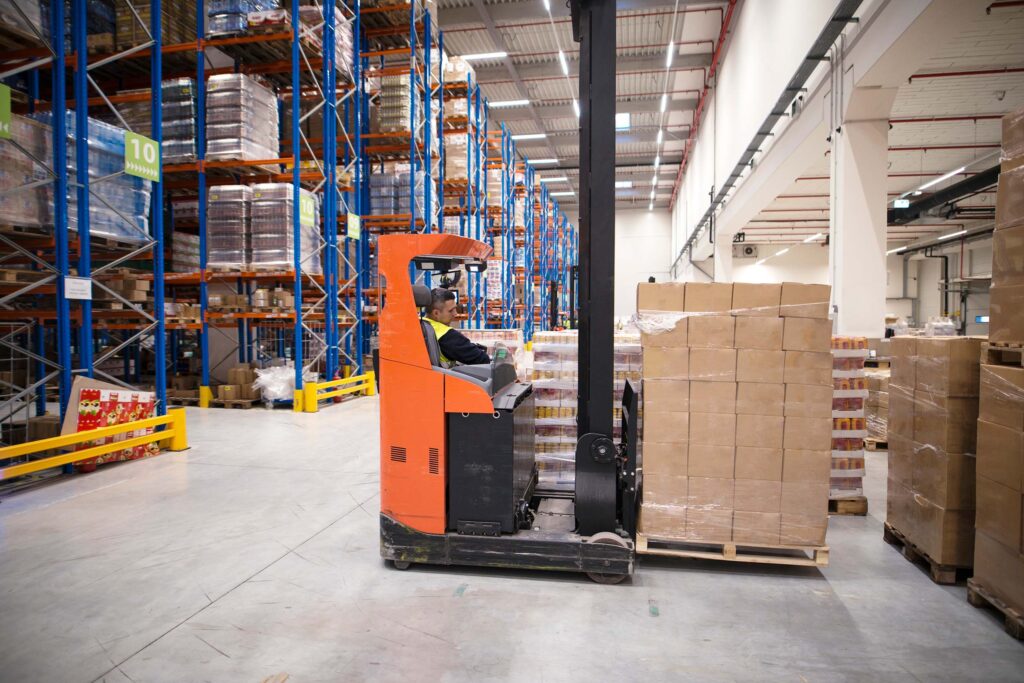
Forklifts play a vital role in warehouses, construction sites, and logistics operations across the UK. Many businesses often search online to find out how much is a forklift, especially when planning for warehouse or logistics budgets. Whether you’re considering purchasing or renting one, it’s essential to understand how much is a forklift costs and what factors influence its price. In this comprehensive guide, we will explore: By the end of this guide, you’ll have all the information you need to make an informed decision about investing in a forklift for your business. How Much Is a Forklift in the UK? A Cost Breakdown by Type If you’re wondering how much is a forklift in the UK, the cost depends on several factors like type, power source, brand, and capacity. Below is a breakdown of forklift costs based on common types used in the UK: Forklift Type New Price Range (£) Used Price Range (£) Electric Counterbalance Forklift £15,000 – £35,000 £5,000 – £15,000 Diesel Forklift £20,000 – £50,000 £6,000 – £25,000 LPG Forklift £18,000 – £40,000 £5,000 – £20,000 Reach Truck £15,000 – £40,000 £6,000 – £20,000 Pallet Truck (Manual) £200 – £800 £50 – £300 Pallet Truck (Electric) £2,000 – £7,000 £500 – £3,500 Telehandler Forklift £50,000 – £100,000 £15,000 – £50,000 Key Takeaway: If you are on a budget, purchasing a second-hand forklift can save you between 40-60% compared to a brand-new model. Forklift Hire Costs in the UK If you only need a forklift for a short period, hiring one might be a more economical solution. Below is an estimated cost for forklift rentals in the UK: Forklift Type Daily Hire (£) Weekly Hire (£) Monthly Hire (£) Counterbalance Forklift (3T) £50 – £150 £150 – £500 £500 – £1,500 Reach Truck £70 – £180 £200 – £600 £600 – £1,800 Pallet Truck £10 – £50 £30 – £150 £150 – £500 Telehandler Forklift £100 – £250 £300 – £800 £1,000 – £2,500 Tip: Many UK forklift rental companies offer long-term leasing options, which can be more cost-effective than short-term hire. Factors That Affect Forklift Prices Several key factors determine how much a forklift will cost in the UK: 1. Type of Forklift 2. New vs. Used Forklifts 3. Brand and Manufacturer Premium brands like Toyota, Linde, Hyster, and Jungheinrich often cost more than lesser-known brands but offer better durability and resale value. 4. Load Capacity Forklifts with higher weight capacities (e.g., 5,000kg+) generally have a higher price tag. 5. Fuel Type 6. Location and Supplier Forklift Training Costs in the UK In the UK, forklift training is a legal requirement for anyone operating a forklift. Below is a breakdown of common forklift training costs: Training Type Cost (£) Duration Novice Forklift Training £350 – £600 3-5 days Refresher Forklift Course £150 – £300 1 day Counterbalance Forklift Training £300 – £500 3-4 days Reach Truck Training £300 – £500 3-4 days Telehandler Forklift Training £400 – £700 3-5 days Tip: Under UK law, forklift operators must be trained and certified in accordance with Health & Safety Executive (HSE) regulations. Where to Buy or Rent a Forklift in the UK? Best Forklift Retailers in the UK: Best Forklift Hire Companies in the UK: Tip: Always compare multiple suppliers to find the best deal. How to Save Money When Buying or Hiring a Forklift 1. Compare Quotes – Get at least three price estimates from different suppliers.2. Consider Used Forklifts – High-quality second-hand forklifts can save you thousands.3. Look for Seasonal Discounts – Some dealers offer price reductions at certain times of the year.4. Negotiate Pricing – Many suppliers are willing to lower their prices for bulk purchases.5. Opt for Long-Term Rental – If you need a forklift for more than six months, leasing is often more cost-effective. Final Thoughts: Should You Buy or Rent a Forklift in the UK? If your business requires a forklift on a daily basis, buying one is a smart investment. However, if you only need a forklift for short-term projects, hiring may be the better option. Regardless of your choice, always factor in training costs and ongoing maintenance expenses to ensure compliance with UK safety regulations. Having a clear idea of how much is a forklift helps businesses make smarter, long-term decisions that align with both budget and safety needs. Need forklift training in the UK? Contact Result Forklift Training for affordable and accredited courses.
Reach Truck vs Forklift Differences Explained for Beginners.
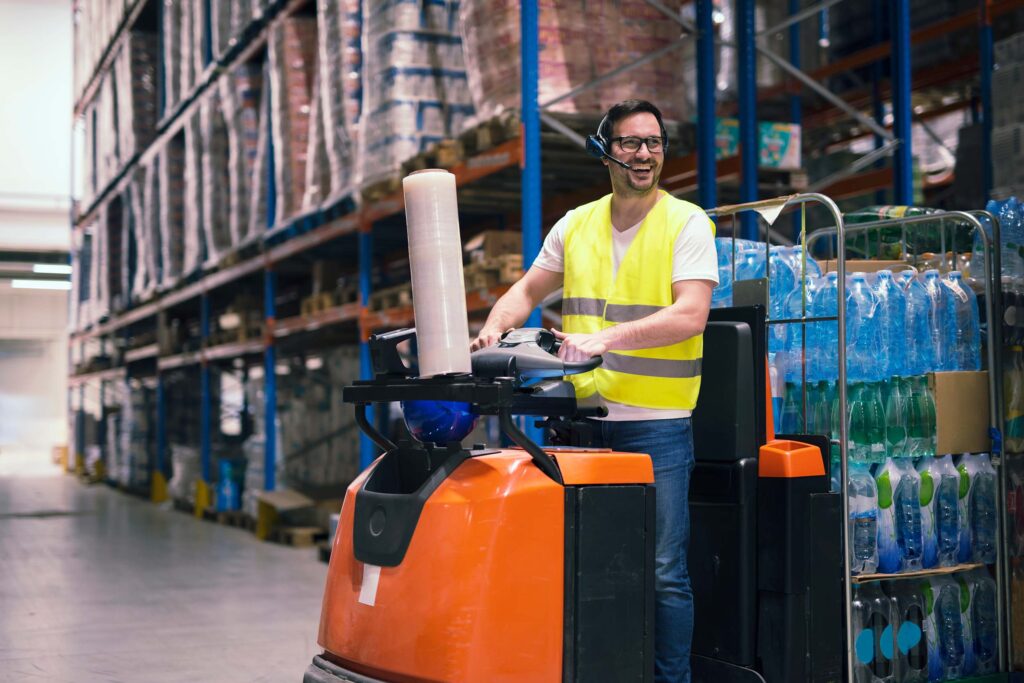
Reach Truck vs Forklift Differences are essential to understand when it comes to material handling in warehouses, factories, and distribution centers. While these two machines might appear similar at first glance, they differ significantly in design, operation, and the types of tasks they’re best suited for. Knowing the key differences can help businesses choose the right equipment for their specific needs. Let’s break down the Reach Truck vs Forklift Differences by first understanding each machine. What Is a Forklift? A forklift is a multi-purpose industrial vehicle employed to lift, move, and stack heavy loads over a short distance. Forklifts are commonly found in warehouses, construction sites, and factories. Key Features of a Forklift: What Is a Reach Truck? A reach truck is a type of forklift designed specifically to be utilized within narrow-aisle warehouses. Reach trucks are different from standard forklifts because they possess a longer mast that allows them to lift loads to greater heights without becoming unstable. Key Features of a Reach Truck: Here’s a table showing the main Reach Truck vs Forklift Differences side by side. Reach Truck vs Forklift Differences Feature Forklift Reach Truck Primary Use Indoor & outdoor material handling Indoor use, narrow-aisle warehouses Lift Height Up to 6 metres Up to 12 metres Load Capacity 1,500 – 25,000 kg 1,000 – 4,500 kg Maneuverability Requires wider aisles (3.5 – 4 metres) Operates in narrow aisles (2.5 – 3 metres) Tyres Pneumatic or solid Small, hard rubber wheels Stability Counterweight in the rear Outriggers and legs for balance Power Source Electric, diesel, LPG Electric Best for Outdoor and heavy-duty lifting High-rack warehouse storage When to Choose a Forklift? A forklift is ideal for:✔ Outdoor work on construction and loading docks.✔ Transporting heavy loads for long distances within a facility.✔ Transporting bulky or oversized material.✔ Use on surfaces with uneven surfaces. When to Choose a Reach Truck? A reach truck is best suited for:✔ High-storage warehouses where maximum vertical space is used.✔ Narrow-aisle warehouses where maneuverability is essential.✔ Indoor operations where emissions must be minimized.✔ Picking and stacking of pallets in high racking. At Result Forklift Training, we offer both courses for beginners. Quickly go through our detailed training course on Counterbalance Forklift Training and Reach Truck Training guides. So, Get your Reach Truck Licence today and become a qualified Reach Truck operator as soon as possible. Our forklift training programme adheres stringently to ACOP guidelines by the HSE and is accepted by the RTITB Training Board Standards accrediting body licensed by the HSE. Conclusion Whereas forklifts and reach trucks are both essential to warehouse efficiency, they serve distinct purposes. In case there is heavy-duty lifting required in widely differing environments within your business, a forklift is the ideal choice. However, if you need to optimize storage capacity in an elevated-rack warehouse, the better choice is a reach truck. By understanding Reach Truck vs Forklift Differences, organizations can make better choices for their needs to improve efficiency, safety, and productivity in material handling operations. Leave a note in the comment section on which course you would love to choose and why. We will reach out to you.
The Importance of Forklift Conversion Courses in the UK
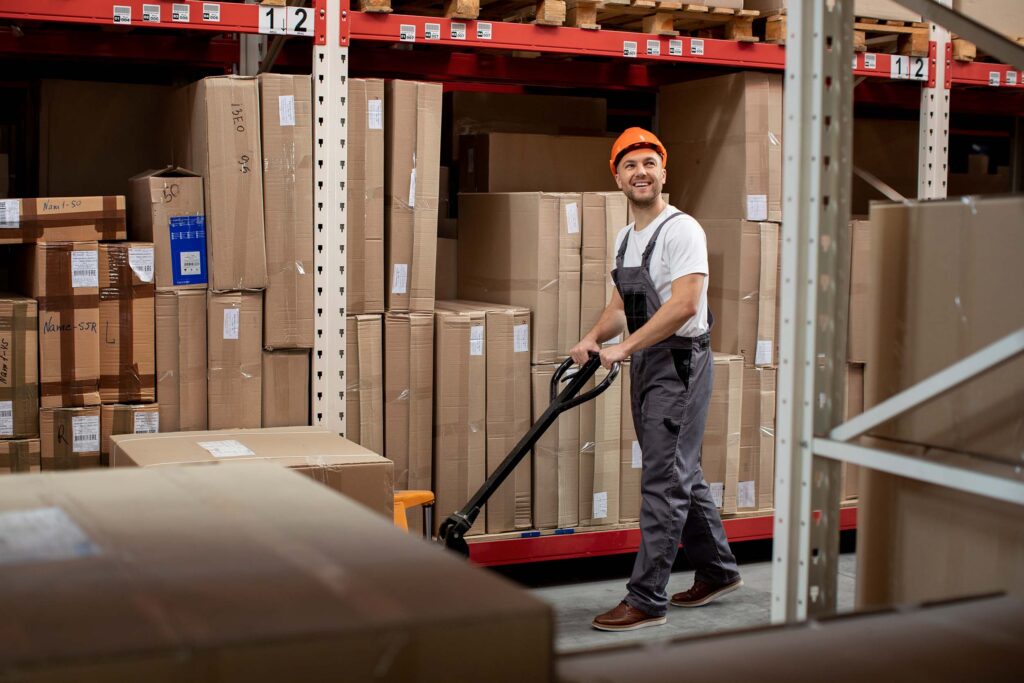
Forklifts are essential in warehouses, factories, and construction sites—but not all machines are the same. That’s where Forklift Conversion Courses come in. However, not all forklifts are the same. Different machines require different skills, and this is where forklift conversion courses become crucial. If you’re a certified forklift operator looking to expand your skills and job opportunities, a forklift conversion course can be a game-changer. Let’s explore why these courses matter, what they include, and how they can benefit your career. What is a Forklift Conversion Course? Forklift Conversion Course are short training programs that help existing operators learn new forklift types quickly and safely. A forklift conversion course is designed for operators who are already trained on one type of forklift and want to learn how to operate a different type. Instead of starting from scratch, these courses provide short and focused training to teach you how to handle new machinery safely and efficiently. Common Forklift Types That Require Conversion Training Forklift Type Primary Use Common Workplaces Counterbalance Forklift Lifting and moving heavy loads Warehouses, loading docks, factories Reach Truck Operating in narrow aisles Warehouses, storage facilities Pivot Steer (Bendi) Truck Tight spaces with high stacking Distribution centres, retail warehouses Telescopic Handler (Telehandler) Lifting materials to high places Construction sites, agriculture Pallet Truck (LLOP & PPT) Moving pallets over short distances Supermarkets, retail stores, factories Why is this important?Each forklift operates differently. A counterbalance forklift is straightforward, while a reach truck requires precise control in tight spaces. A telehandler is even more complex, often used in outdoor environments with rough terrain. Without proper training, switching forklifts can be dangerous. You must choose the right forklift training program that suits you the most. Why Forklift Conversion Course Are Important? 1. Safety First Operating a forklift without proper training is extremely risky. Different forklifts have different controls, weight distributions, and balance points. A forklift conversion course ensures you learn: 📌 Example: If you’re used to a counterbalance forklift but need to use a reach truck, you must learn how to manoeuvre in narrow aisles and maintain balance at higher lift heights. 2. Legal Requirements & Compliance In the UK, Health and Safety Executive (HSE) regulations require that all forklift operators receive proper training before using new types of forklifts. Employers must prove that their staff are competent to operate different machines and must hold a valid license (if any). Failing to complete a forklift conversion course could lead to:❌ Increased workplace accidents❌ Legal liability for the employer❌ Potential fines and penalties ✅ Solution: Completing a conversion course protects both the operator and the company by ensuring compliance with health and safety laws. 3. Expands Career Opportunities The more forklifts you can operate, the more valuable you become to employers. Many companies look for multi-skilled operators who can handle different types of forklifts depending on the job requirements. Benefits for Your Career ✔ Increases job opportunities in warehouses, construction, and logistics✔ Makes you a more flexible and valuable employee✔ Opens doors to higher-paying roles with added responsibilities 📌 Example: If you’re trained on a counterbalance forklift but apply for a job requiring reach truck skills, having a conversion certificate gives you a competitive edge. 4. Saves Time & Money A forklift conversion course costs less and takes less time than full forklift training. Since you already have basic forklift operating skills, the course focuses only on: Employers save money by training current employees instead of hiring new ones. Employees save time by upgrading their skills quickly without repeating unnecessary training. Who Should Take a Forklift Conversion Course? A forklift conversion course is ideal for:✔ Certified forklift operators who want to expand their skills✔ Employees required to use different forklifts within the same job✔ Warehouse and logistics workers looking for career progression✔ Employers needing to train staff for different job roles What to Expect in a Forklift Conversion Course? Training Module What You’ll Learn Theory Training Differences between forklift types, safety guidelines, and regulations Practical Training Hands-on driving practice, load handling, and manoeuvring Safety Procedures Stability, balance, and emergency protocols Assessment & Certification Practical test to ensure competency Duration: Most forklift conversion courses last 1-2 days, depending on the complexity of the new forklift type. How to Enrol in a Forklift Conversion Course Step 1: Find an Accredited Training Provider Make sure the course is approved by RTITB, ITSSAR, AITT, or NPORS in the UK. Step 2: Choose the Forklift Type You Need Only take training for the forklifts required in your job. Step 3: Complete the Course & Get Certified Once you pass the practical assessment, you’ll receive a conversion certification that proves you are qualified to operate the new forklift. Final Thoughts: Why You Shouldn’t Skip Forklift Conversion Training A forklift conversion course isn’t just a box-ticking exercise—it’s a lifesaving skill that enhances your career, keeps workplaces safe, and ensures compliance with regulations. If you’re a forklift operator, investing in conversion training is one of the smartest moves you can make. It makes you more employable, keeps you and your team safe, and ensures you stay up to date with modern forklift operations.📌 Thinking of upgrading your forklift skills? Find an accredited training provider near you and get certified today!

